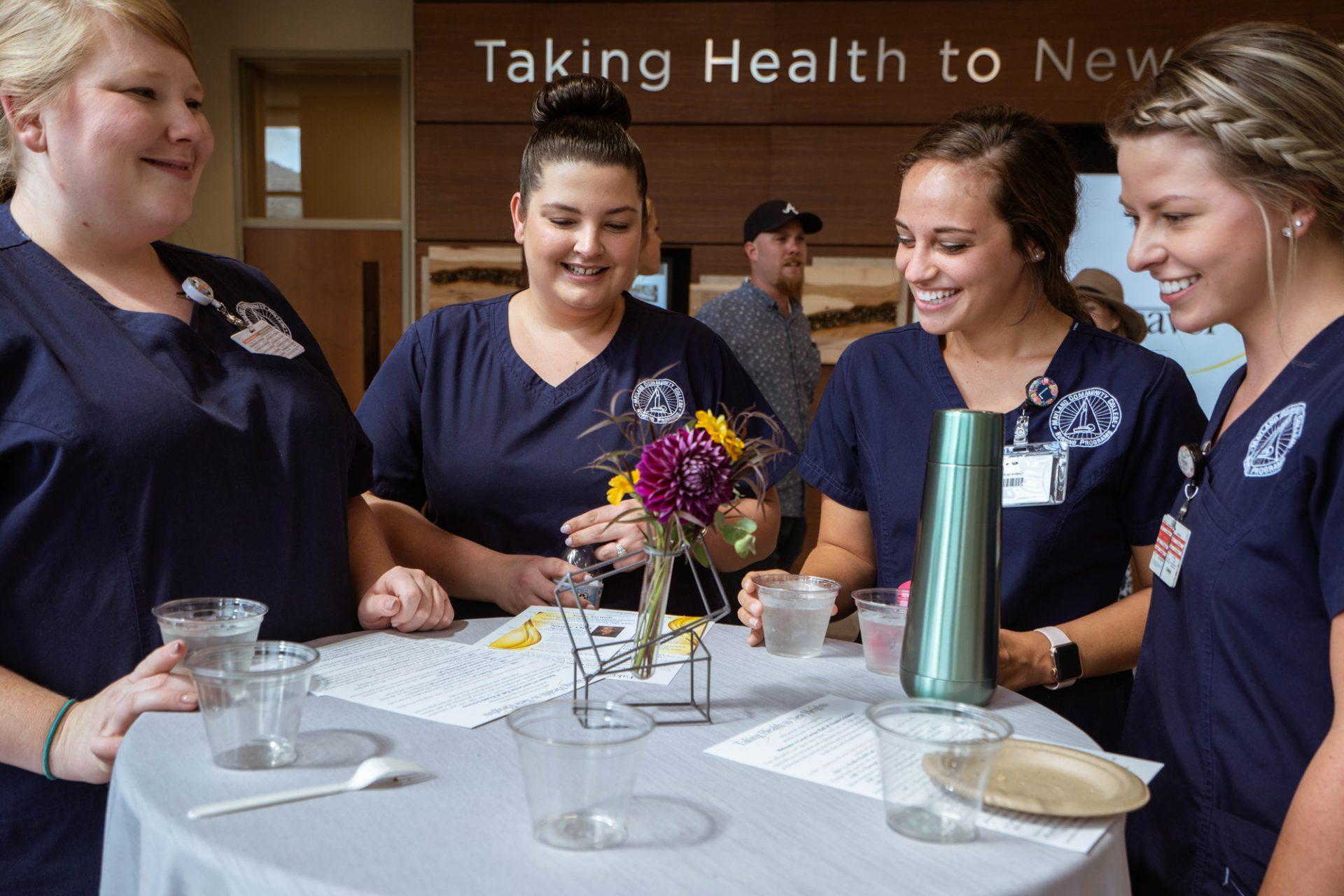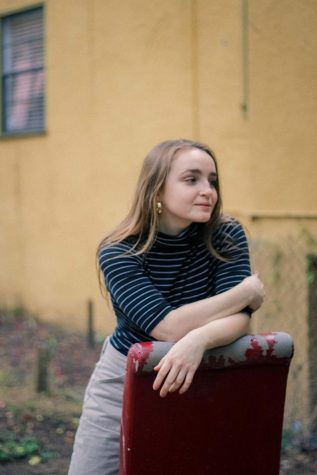The ribbon-cutting ceremony for the Leon Levine Health Sciences building took place Friday, ushering in a new chapter for the Beaver College of Health Sciences.
The 203,000-square-foot building is the largest academic building on App State’s campus. It features lecture halls to house the 2,330 students attending classes there this semester, as well as fully equipped laboratories, an information commons and Rise Market and Bakery.
Chancellor Sheri Everts, UNC School System President Margaret Spellings, Student Body President DeJon Millbourne and university representatives were in attendance to celebrate.
“I’m just thrilled,” Everts said. “This is just a fabulous day for Appalachian, there are so many folks who have worked so hard, for so long, to deliver this gorgeous learning facility.”
Edwin Duncan and the L.S. Dougherty buildings previously hosted many health sciences classes before Leon Levine was constructed. Edwin Duncan lacked air conditioning and many of the facilities that Leon Levine now has, like food labs equipped with new appliances and monitors.
“It feels kind of like we’re moving up and getting the space that we all need,” first-year nutrition graduate student Ashlyn Greene said.
Greene completed her undergraduate in nutrition last year and said she is excited for the opportunities available to her in the new building as a graduate student. She took nutrition classes in the L.S. Dougherty building and appreciates the new technology the Leon Levine building provides.
“My favorite thing currently is the food labs, they’re really cool,” Greene said. “In my undergrad, we had kitchens from like the fifties, it was basically mini kitchenettes, now there’s like actual industrial-sized equipment.”
Leon Levine Hall is the first completed project of the Connect NC Bond. The bond is a $2 billion referendum approved by North Carolina voters in 2016 to stimulate “infrastructure improvement projects across the 17 University of North Carolina Campuses,” according to the UNC System.
Spellings said large investments like Leon Levine Hall are a significant economic driver for the state.
“Because the North Carolina public continues to invest in us, we are going to be able to keep powering our economy and empowering every North Carolinian for the next half-century,” Spellings said. “This is a big day for Appalachian, obviously, but it is also a big day for the state at large.”
“This should be motivating to all communities across the state that this is your tax dollars at work,” North Carolina Senator Deanna Ballard said.
Dean of Health Sciences Marie Huff anticipates the lasting effects Leon Levine Hall will have on students and the community.
“All the students learning here today are going to make an impact tomorrow and serving others in this region and beyond,” Huff said.
Story by: Mickey Hutchings, Photo Editor
Photo by: Hayley Canal, Staff Photographer
Feature photo caption: Health science students celebrating the ribbon-cutting ceremony of the Leon Levine building for health sciences. 2,300 students are taking classes in the new building this semester.



